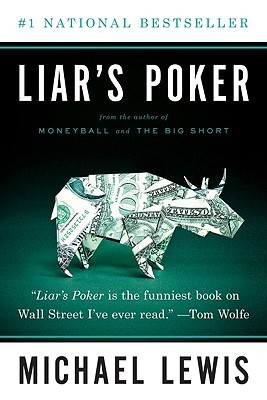
Flash Boys: A Wall Street Revolt
Book Description
In the shadowy realm of high finance, a revolution brews beneath the polished surface of Wall Street. A group of renegade traders discovers a dark underbelly of high-frequency trading, where milliseconds can make millions and the game is rigged against the average investor. As alliances form and betrayals loom, they embark on a high-stakes battle against an invisible enemy that manipulates the very fabric of the stock market. With fortunes hanging in the balance, will their efforts expose the truth and bring fairness back to the game, or will they be crushed under the weight of a system designed to protect the elite?
Quick Book Summary
"Flash Boys: A Wall Street Revolt" by Michael Lewis is an exposé of the inner workings of contemporary financial markets, revealing how high-frequency traders (HFTs) exploit technological advantages to gain unfair profits at the expense of ordinary investors. The book centers around a group of Wall Street insiders, led by Brad Katsuyama, who uncover the ways in which milliseconds can mean millions. These renegades discover that the stock market is rigged in favor of those with the fastest computers and exclusive access to trading information. Determined to set things right, they band together to create a fairer exchange, and in doing so, challenge the entrenched, opaque systems of Wall Street. Their journey reveals not just the technical wizardry of HFT, but also the ethical and human implications of a marketplace increasingly detached from its original purpose.
Summary of Key Ideas
Table of Contents
The Mechanics and Impact of High-Frequency Trading
The book opens by uncovering the hidden world of high-frequency trading (HFT), where fractions of a second matter more than traditional financial acumen. These traders use advanced algorithms, ultra-fast fiber optic cables, and proximity to stock exchanges to intercept trades and exploit price differences before the trades complete. Michael Lewis illustrates how HFTs have transformed the stock market from a place for investment and capital formation into a battleground for technological supremacy, turning milliseconds into lucrative opportunities and leaving everyday investors at a disadvantage.
Market Rigging and Information Asymmetry
Central to Lewis's narrative is Brad Katsuyama, a mild-mannered trader at the Royal Bank of Canada, who notices strange anomalies in his trades. When he tries to buy stocks at one price, the market price shifts instantaneously, costing his clients money. Through detective work, Katsuyama and his team discover that HFT firms are strategically placing their servers closer to stock exchanges and using speed to essentially front-run investors’ orders. The book explores the ethical dilemma inherent in such a system, where technological prowess trumps fair play and transparency.
The Pursuit of Fairness and Transparency
Motivated to level the playing field, Katsuyama assembles a group of like-minded individuals from various segments of the industry. Together, they piece together how information asymmetry and obscure exchange practices enable HFT firms to game the system. Their collaboration culminates in the creation of IEX, a new stock exchange designed to eliminate the timing advantages exploited by HFTs. By implementing intentional delays, or “speed bumps,” IEX seeks to ensure that all market participants have a fair shot, restoring some trust in the system.
Technology’s Transformative Power in Finance
Lewis deftly interweaves technical explanations with personal anecdotes to underscore the human impact of market manipulation. He shows how the relentless pursuit of speed and secrecy by Wall Street firms erodes the integrity of the financial markets. The story underscores the role of technology as both a disruptor and enabler, capable of both positive innovation and dangerous distortion. This duality frames the backdrop for the ethical struggles at play.
Challenging Wall Street’s Status Quo
"Flash Boys" ultimately serves as both a thrilling narrative and a call to action. By exposing the mechanisms of market rigging and profiling the efforts of Katsuyama’s team, Lewis spotlights the need for greater accountability and transparency. The book questions who financial markets are meant to serve and challenges the status quo, making a compelling case for reform and vigilance in a financial system susceptible to unchecked technological manipulation.
Download This Summary
Get a free PDF of this summary instantly — no email required.





